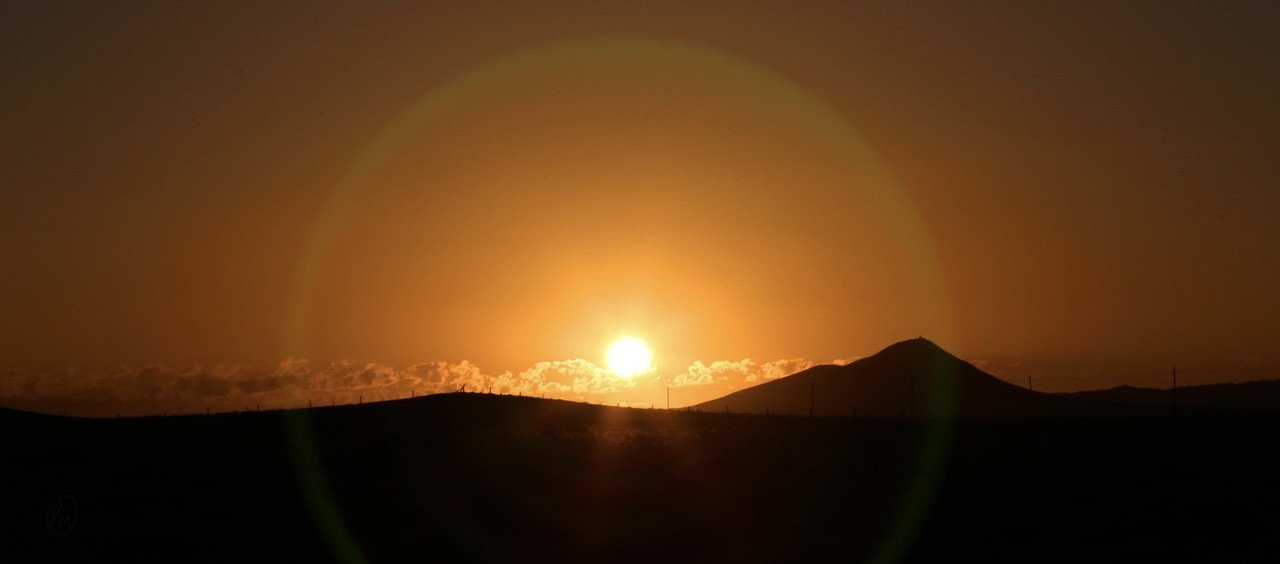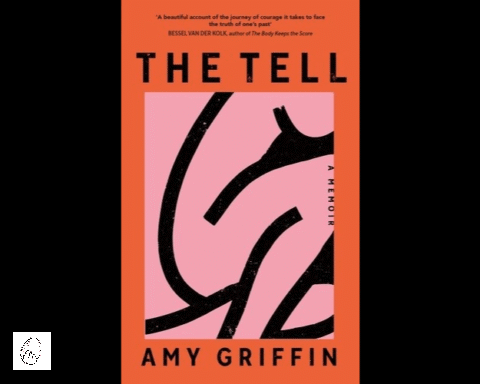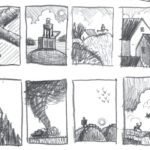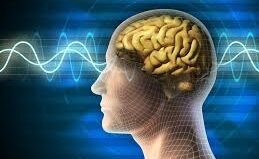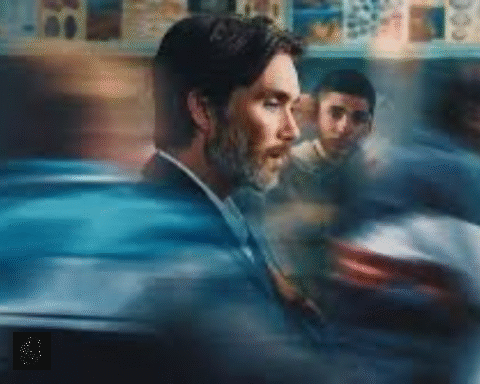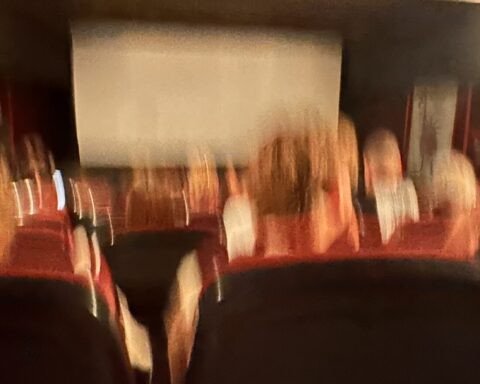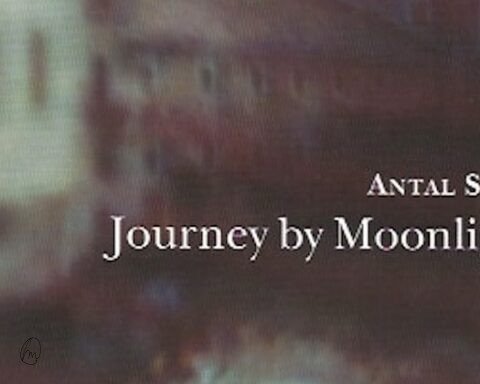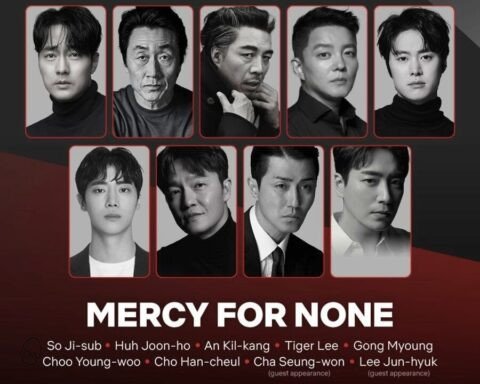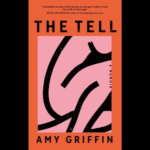Why You Can’t Concentrate Anymore — And What Johann Hari Found Out
Have you noticed how the people around you seem to be paying less and less attention to things?
Do you catch yourself struggling to stay focused?
Have you ever shoved your phone aside, thinking: “Enough—I’m sick of scrolling through endless Facebook, Insta, and TikTok feeds”?
You’ve felt it, haven’t you?
That feeling—like you have to do something, or your life will just flick away while you keep flicking through your phone.
Well, listen up—because here’s the good news:
You’re not alone.
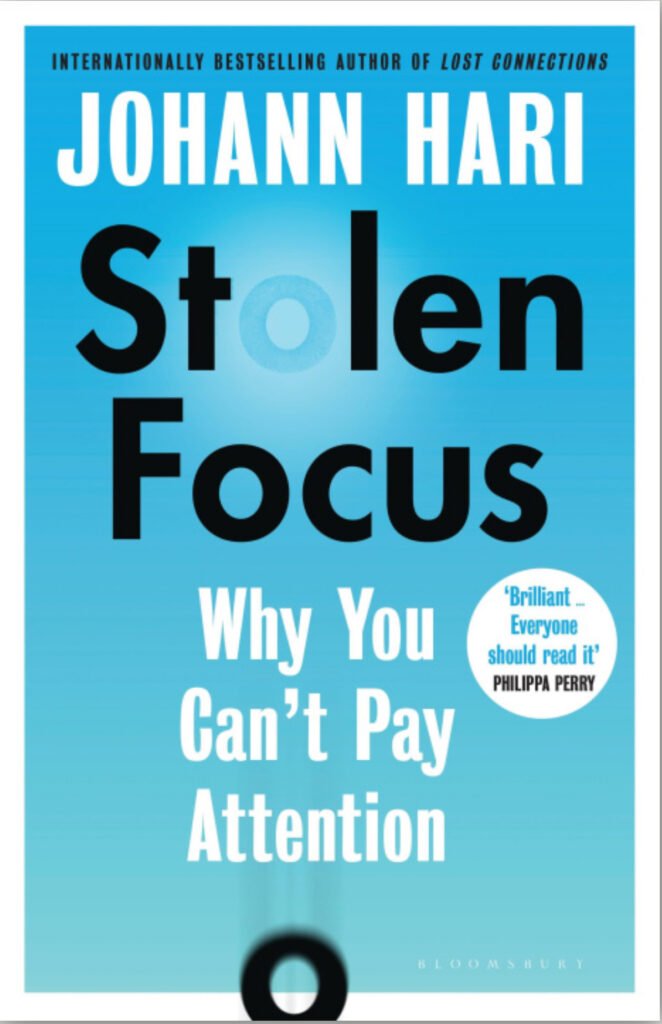
In fact, you’re so not alone that there’s now an entire field of science dedicated to this exact question: “Where is human attention disappearing?” – and it’s inspired more than a few books.
If it feels awkward to admit, don’t worry—I’ll read it for you: Stolen Focus.
Its author, Johann Hari, felt the same way. Like he was drifting with the current, a lead weight pulling at his neck. Drifting through life. Just trying to stay afloat in the flood of nonstop feeds, the scramble for likes, and the endless chase after online trends. He checked his phone like an addict. Tracked how many likes his posts got—and how fast. He spiraled when those tinny but powerful hearts didn’t add up.
Then one day, he’d had enough—of himself. A thought popped into his head: he’d become a hermit.
A digital hermit.
At least until he kicked the addiction, ditched his phone, and caught up on everything he’d been missing. Then—drawing from the experience—he wrote a book. That’s how it happened: one fine day, this well-known American journalist announced on social media that he was disappearing for three months.
– Bruh, lucky guy, right? Wish I could disappear for three months too—creative retreat style. “See ya, I’m out… and let the bills keep rolling in.”
Digital Asceticism
On day one of his detox, Hari packed up an ancient laptop, an even older phone, and moved to a quiet little town. But he quickly realized: the erosion of our attention isn’t just about daily phone use.
It’s not (only) about scrolling.
Silicon Valley: The Race for Your Attention
The mission of tech companies is simple: keep you on their platform for as long as possible. You. Me. Everyone. Which means they have to flood you with information— because if you leave, they lose ad money. We owe the invention of infinite scrolling to a developer named Aza Raskin (son of Jef Raskin, who designed the first Apple Macintosh for Steve Jobs). Aza radically reshaped the search experience: he removed the “next page” button— that crucial pause when users could stop and decide: more, or enough?
And just like that, infinite scroll was born.
That tiny tweak tore through Silicon Valley like wildfire.
Put simply: have you ever actually reached the bottom of your Facebook feed?
That point where the app says: “no more feed”?
Chances are, you haven’t.
And you never will.
Because that one little line of code Aza wrote chains you to your screen.
Scroll till death.
It’s fair to be outraged. But don’t hate the guy— he realized the burden he’d placed on users. And he regrets it. Forgiven.
Here’s a wild stat: Computer monitoring studies from the 2020s showed that the average American college student switches tasks every 60 seconds.
In plain terms: they can barely focus on one thing for more than a minute. And it gets worse— on average, people stay focused on a single topic for just 19 seconds.
Folks of the future. Tragic.
Fun fact: meanwhile, the kids of the IT elite are raised on Montessori and other alternative schooling systems— designed specifically to sharpen focus and nurture creativity.
What’s more: if you’re pulled out of a deep workflow— even just by a ping on your phone—it takes nearly 20 minutes of mental effort to get back to full focus. That’s a shocking cognitive cost.
So, the first step in protecting your mind and attention?
Mute your notifications. The human brain— like your muscles—can be trained.
This tiny step already starts to pull you away from that exhausted, hollow state of being. But sadly, there’s more to the story behind why so many people feel drained and burned out. These are the roots Johann Hari set out to explore.
His book isn’t one of those preachy self-help manuals— you won’t find any cheesy promises like “do this and you’ll feel amazing!” Instead, it’s full of scientific observations, delivered in a way that actually makes sense to ordinary humans like you and me, just trying to cope in a world that never stops pressing in. It also shows just how painfully slow industries are when it comes to protecting human health. And how much more the European Union does for its citizens—compared to the U.S., where companies like Google use Gmail algorithms to scan and analyze the tone and content of your private emails for their own gain.
As the writer of this article, I had several moments of relief while reading the book. I became more compassionate with myself, and daily life started to feel a little easier to navigate.
I believe this meticulous and honest book deserves a place on every bookshelf— because you can still win.
You can reclaim your focus. Your flow state.
The very thing Mihály Csíkszentmihályi once wrote about.
Because reading is worth it.
Previous article of the series of “If you embarrassed” is here
